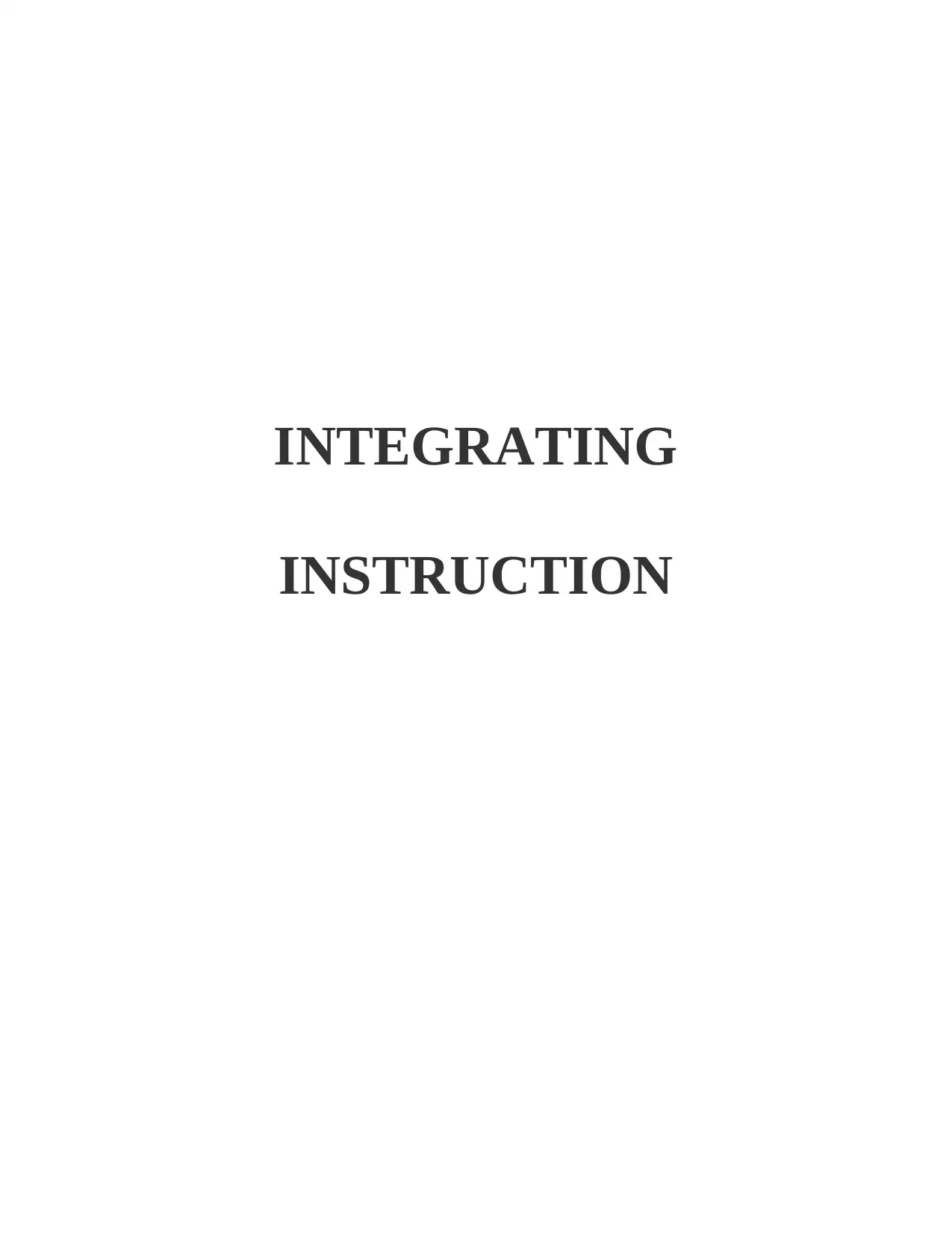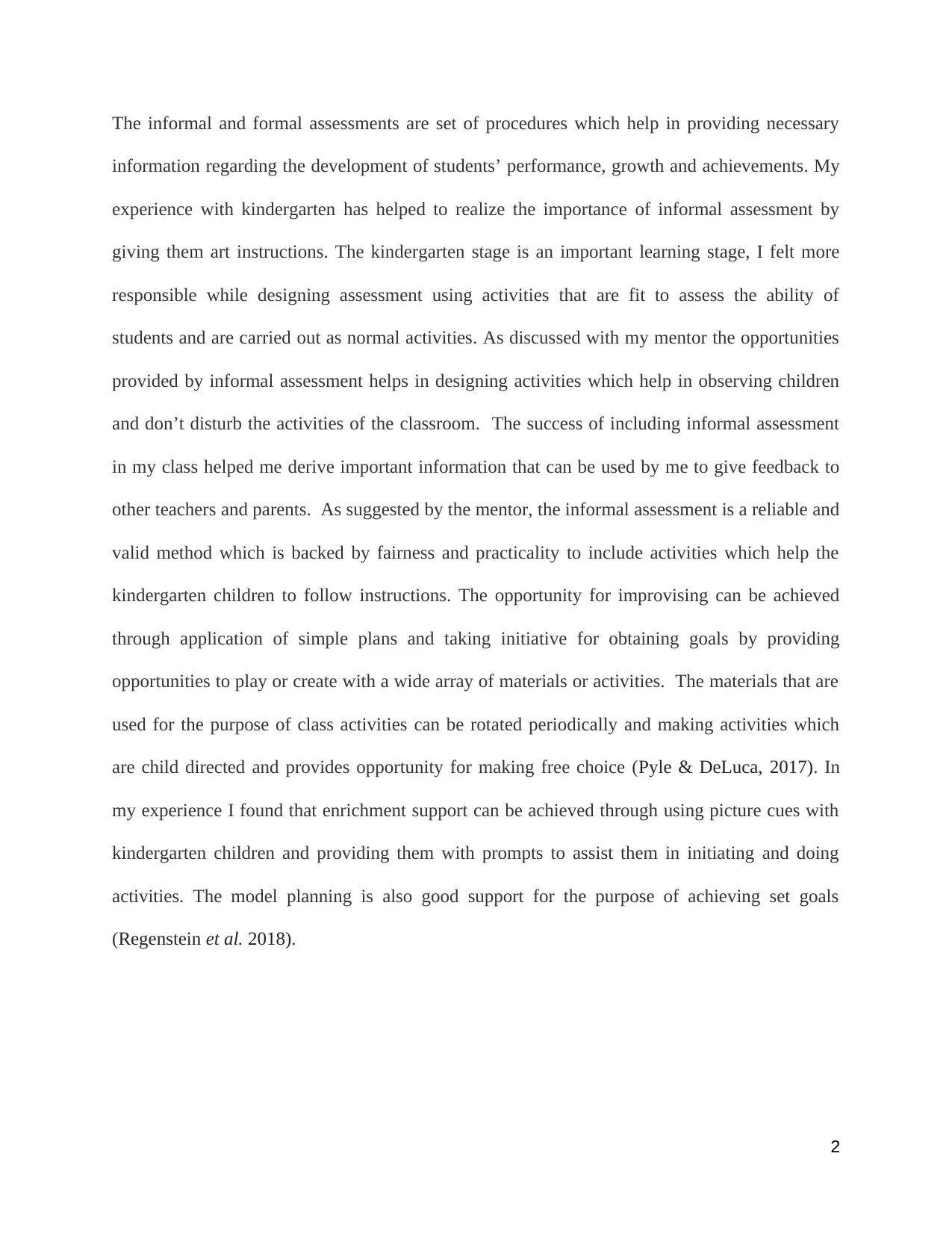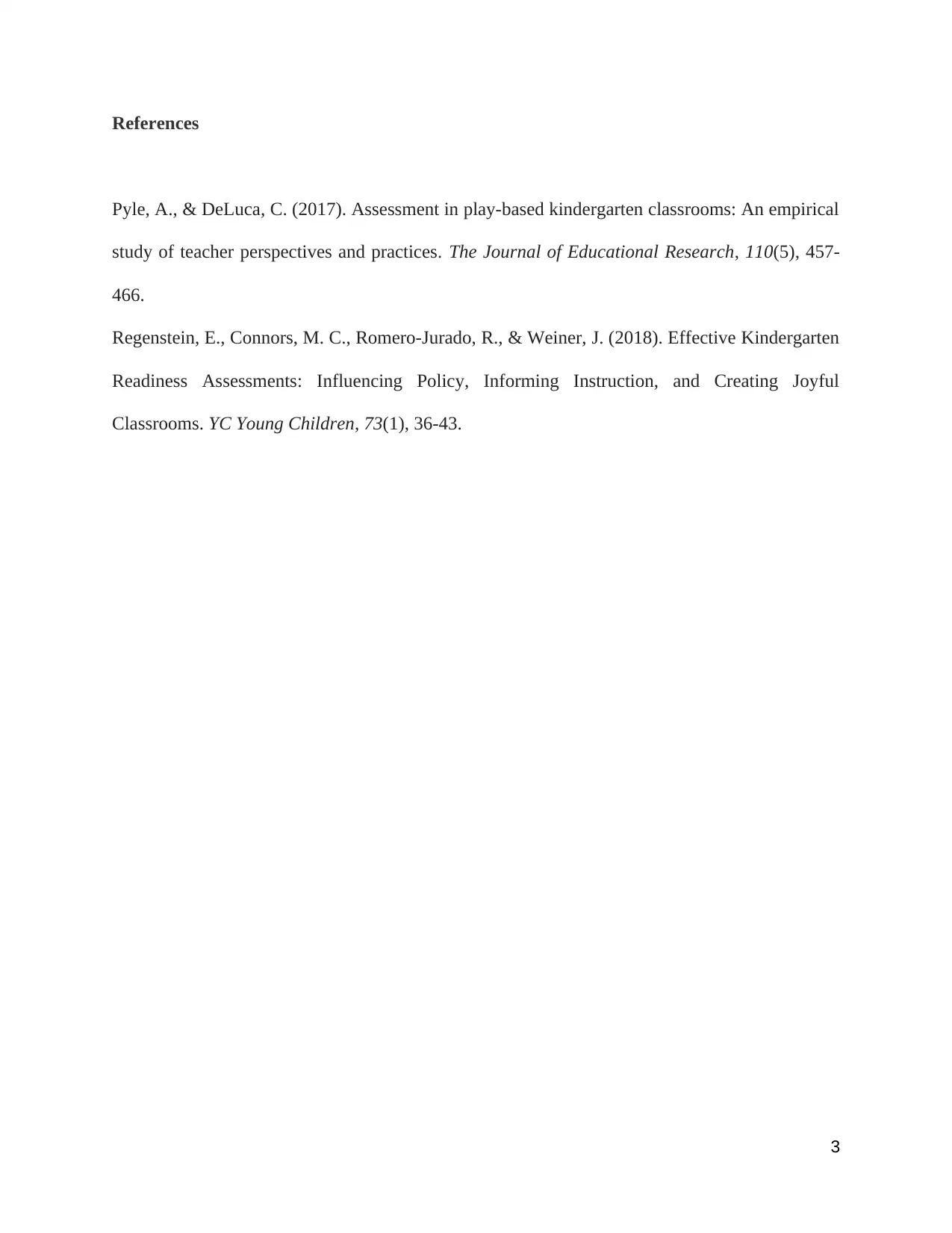Kindergarten Assessment: Integrating Instruction and Activities
VerifiedAdded on 2022/08/29
|3
|393
|17
Homework Assignment
AI Summary
This assignment focuses on kindergarten assessment, specifically exploring the integration of instruction and activities. The author reflects on their experience, emphasizing the importance of informal assessment methods in observing and understanding student performance. The assignment highlights the use of art instructions and the creation of activities tailored to assess student abilities. The author discusses the benefits of informal assessment, including the ability to provide feedback to teachers and parents. The assignment also references relevant literature, suggesting the use of picture cues and prompts to support student learning and achieve set goals. The author also highlights the importance of providing opportunities for free choice and the use of varied materials to enrich the learning experience. This assignment offers insights into effective kindergarten assessment practices and classroom strategies.
1 out of 3










![[object Object]](/_next/static/media/star-bottom.7253800d.svg)